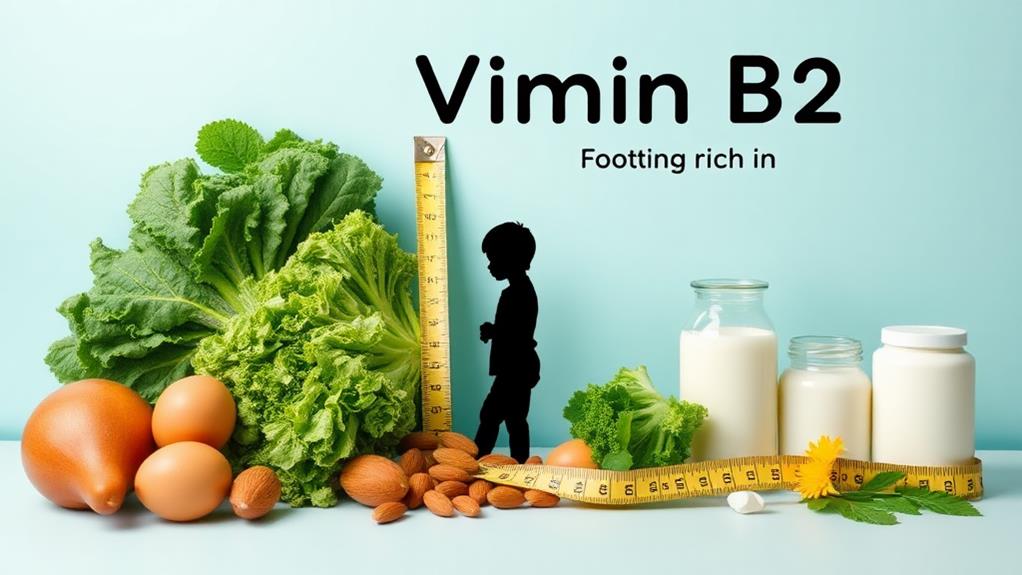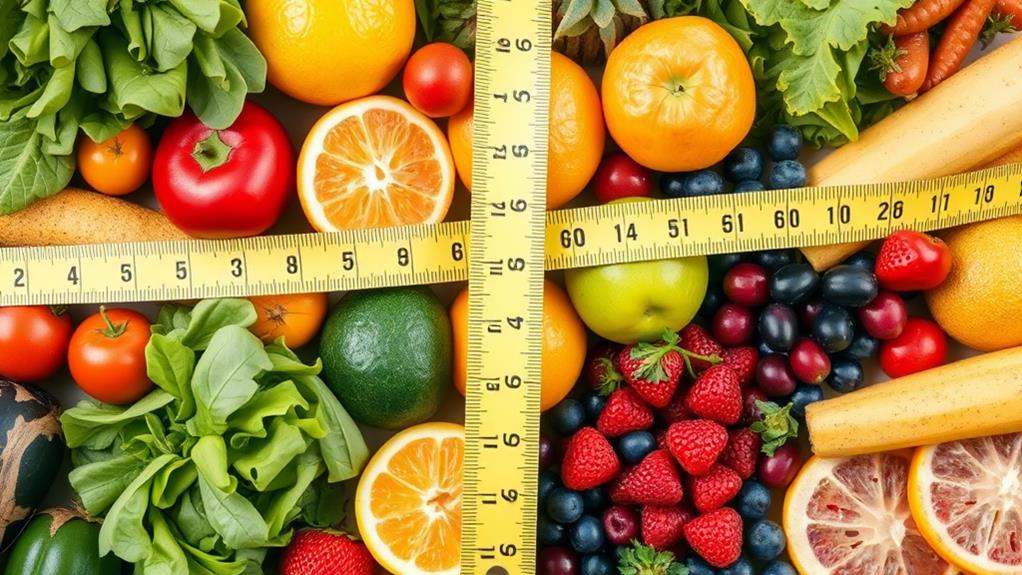When it comes to growing taller naturally, you might not realize the vital role vitamins play in this process. You'll find that incorporating the right vitamins can greatly support your growth and overall health. For instance, Vitamin D is essential for calcium absorption, while Vitamins A, B1, and B2 contribute to hormone production and organ function. Understanding how each of these nutrients interacts can be the key to maximizing your potential height. But which vitamin should you prioritize, and how can you guarantee you're getting enough of them?
Vitamin D Benefits

Vitamin D plays an essential role in your bone health and growth. It helps your body absorb calcium and phosphorus, which are vital minerals for building and maintaining healthy bones. Without enough vitamin D, your bones can weaken, increasing the risk of conditions like rickets in children, which can hinder overall growth.
To support ideal growth, the recommended daily allowance for vitamin D varies by age. Infants need about 10 mcg (400 IU), while those aged 1-70 should aim for around 15 mcg (600 IU). You can find vitamin D in dietary sources like fortified milk and fatty fish, such as salmon.
Additionally, exposure to sunlight is a natural way for your body to synthesize vitamin D, making it an easy addition to your routine.
Studies have shown that adequate levels of vitamin D are linked to height increase in children, highlighting its importance during growth spurts. By ensuring you get enough vitamin D, you're setting the stage for strong bone growth and a healthy future.
Importance of Vitamin B1
Thiamine, or vitamin B1, is fundamental for your growth and development, particularly during childhood and adolescence. It plays an important role in promoting body growth by regulating digestion and ensuring your metabolic processes function effectively.
A healthy heart and nervous system are critical for overall health, and vitamin B1 supports both of these systems, making it an important nutrient for young people.
You can find rich sources of vitamin B1 in foods like rice, peanuts, pork, and soybeans, which makes it easy to include in a balanced diet. When you consume enough vitamin B1, it helps maintain a regular blood supply to your organs, promoting efficient nutrient delivery throughout your body. This is especially significant for your growth and development.
However, a deficiency in vitamin B1 can hinder your growth, highlighting its importance in a nutrient-rich diet for children and teens. By ensuring you get enough of this essential vitamin, you're taking a big step toward promoting growth and supporting your overall health.
Role of Vitamin B2

Riboflavin, or vitamin B2, plays a significant role in your growth, especially during childhood and adolescence. This essential vitamin supports the development of bones, skin, hair, and nails by enhancing energy production and cellular function.
In fact, vitamin B2 is fundamental for the metabolism of fats, drugs, and steroids, which are all important processes for your overall health and growth.
To guarantee you get enough vitamin B2, it's important to include dietary sources in your balanced diet. Good options include eggs, fish, milk, and green leafy vegetables. These foods will help you reach the recommended daily intake, which varies by age.
During periods of significant growth, such as in children and teenagers, your body requires more vitamin B2. A deficiency in vitamin B2 can hinder your growth and development, making it essential to consume enough of this vitamin.
Vitamin C for Growth
When it comes to growth, you can't overlook the importance of vitamin C. This essential vitamin plays a significant role in strengthening your bones and teeth, which helps promote overall height development during childhood and adolescence.
Vitamin C is also a powerful antioxidant that boosts your immune system, supporting tissue repair—an important process for growth.
To make the most of vitamin C, you should pair it with minerals like calcium and phosphorus. This combination maximizes your growth potential by enhancing the absorption and utilization of these minerals in your body.
You can find rich sources of vitamin C in foods like tomatoes, potatoes, citrus fruits, and berries, making it easy to include in a healthy and balanced diet.
If you don't get enough vitamin C, it can hinder your growth, emphasizing why it's essential to maintain a nutrient-rich diet filled with important vitamins and minerals.
By prioritizing vitamin C, you're taking a significant step toward achieving your height goals and supporting your overall health.
Calcium's Impact on Height

Calcium's critical role in your growth journey can't be overstated. This important mineral is essential for building strong bones and reaching your maximum height potential. During childhood and adolescence, your body needs an adequate amount of calcium, with recommendations ranging from 500 mg for toddlers to 1300 mg for teens.
Consuming enough calcium can help you grow by preventing stunted growth and ensuring your bones stay strong and long.
Major sources of calcium include dairy products like milk, yogurt, and cheese, as well as leafy greens like spinach and collards. Fortified soy products also pack a calcium punch!
But did you know that calcium works best when paired with vitamin D? This vitamin helps support growth by enhancing calcium absorption, making both nutrients crucial for your overall bone health.
Studies have shown that individuals who consume higher levels of calcium during their growth years often end up taller.
Significance of Vitamin A
Vitamin A plays an essential role in your growth journey, especially during childhood and adolescence. This important nutrient supports bone growth and development by aiding in the formation and maintenance of healthy bones and tissues.
It also enhances the production of growth hormones, which are critical for height increase as you grow.
You can find vitamin A in rich dietary sources like liver, dairy products, and fish. Don't forget about colorful fruits and vegetables, such as carrots and spinach—they're packed with this significant vitamin too!
A deficiency in vitamin A can lead to stunted growth and weaken your immune function, highlighting its importance during your developmental years.
For children aged 1-3 years, the recommended daily allowance (RDA) is about 300 micrograms of retinol activity equivalents (RAE), which increases to 600 micrograms for those aged 9-13 years.




